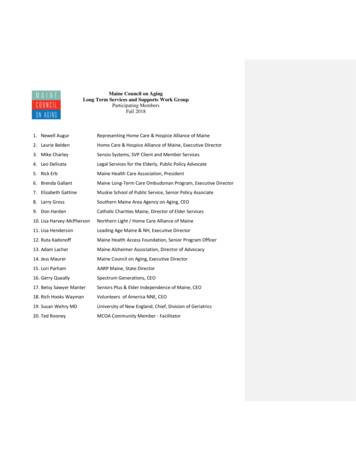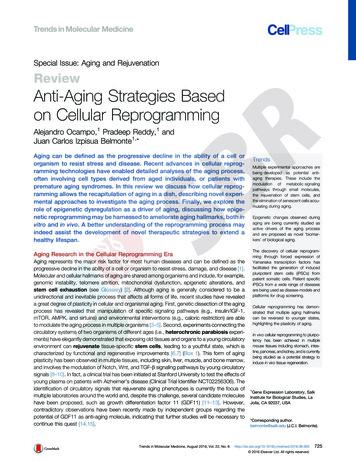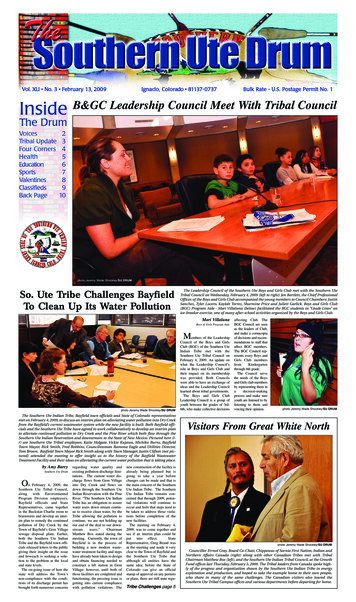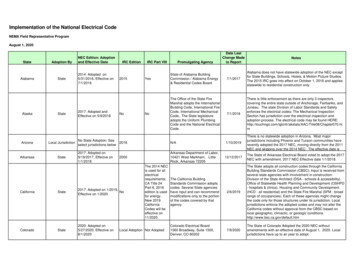
Transcription
Maine Council on AgingLong Term Services and Supports Work GroupParticipating MembersFall 20181. Newell AugurRepresenting Home Care & Hospice Alliance of Maine2. Laurie BeldenHome Care & Hospice Alliance of Maine, Executive Director3. Mike CharleySensio Systems, SVP Client and Member Services4. Leo DelicataLegal Services for the Elderly, Public Policy Advocate5. Rick ErbMaine Health Care Association, President6. Brenda GallantMaine Long-Term Care Ombudsman Program, Executive Director7. Elizabeth GattineMuskie School of Public Service, Senior Policy Associate8. Larry GrossSouthern Maine Area Agency on Aging, CEO9. Don HardenCatholic Charities Maine, Director of Elder Services10. Lisa Harvey-McPhersonNorthern Light / Home Care Alliance of Maine11. Lisa HendersonLeading Age Maine & NH, Executive Director12. Ruta KadonoffMaine Health Access Foundation, Senior Program Officer13. Adam LacherMaine Alzheimer Association, Director of Advocacy14. Jess MaurerMaine Council on Aging, Executive Director15. Lori ParhamAARP Maine, State Director16. Gerry QueallySpectrum Generations, CEO17. Betsy Sawyer ManterSeniors Plus & Elder Independence of Maine, CEO18. Rich Hooks WaymanVolunteers of America NNE, CEO19. Susan Wehry MDUniversity of New England, Chief, Division of Geriatrics20. Ted RooneyMCOA Community Member - Facilitator
March 2019Maine Council on Aging Work Group on Long Term Services and SupportsThe Maine Council on Aging convened a working group of several dozen members who met threetimes in the Fall of 2018 to develop recommendations for improving Maine’s long terms servicesand supports (LTSS) system. The group reviewed and added to the recommendations included inthe report from the 2018 Maine Wisdom Summit 2016/05/MCOA-Wisdom-Summit-Report-Final.pdf), and further refined therecommendations into short and longer term strategies. This work was also informed by severalone-on-one interviews with key stakeholders that occurred prior to the Wisdom Summit.Following are the general goals the group adopted, along with specific recommendations.General goals: To improve effectiveness and efficiency of Maine’s LTSS system. To create parity across age and disability resources based on functional support needsrather than diagnosis to promote equity and facilitate portability among program choices. To promote person-directed (person-centered) care. To target institutional services only to those whose needs cannot adequately be met in thecommunity (i.e. adopt a “community first” approach to care). To maintain and improve quality of services.I.Increase access to existing servicesA. Importance: Maine’s system of LTSS has not had comprehensive reform since the mid1990’s, before the Olmstead ruling brought changes to Medicaid to better supportdelivery of Home and Community Based Services (HCBS). Additionally, eligibility(financial –including cost sharing-and medical eligibility) has not significantly changed.Evaluation of eligibility is particularly critical because Maine has very restrictivenursing facility level of care which limits access to its 1915(c) waiver for older adultsand adults with disabilities.1. Shorter term strategies: Depending on timing of larger Medicaid (also known as MaineCare) reforms,expand access to state funded Home Based Care programs and re-evaluatefinancial eligibility and cost sharing provisions. Evaluate how to reduce institutional bias in financial eligibility rules betweennursing facility and waiver (e.g. individuals who lose Medicaid eligibility uponleaving the NF).MCOA LTSS Work Group Recommendations1
2. Longer term strategies: Establish ways for individuals to receive broader array of service options such asthose offered under the 1915(c) waiver (Section 19)—either throughreconsideration of waiver eligibility or through the use of alternative Medicaidauthorities (e.g. 1915(i) SPA, 1115 demonstration). Leverage existing state dollars into Medicaid programs where appropriate. Determine how many individuals needing services would continue to fall outsideMedicaid eligibility and consider options for state dollar delivery of services(sliding scale, shared payments, etc). Explore options to provide services to pre-Medicaid at risk individuals (e.g.enhance state funded services or leverage Medicaid).II.Better connect individuals and their families to information and servicesA. Importance: The LTSS system is confusing and fragmented; it can be overwhelming tonavigate for older adults and their families, especially in times of crisis. Developing aneffective entry system is key to assuring that individuals get the “right service, in theright amount, at the right time” and avoiding suboptimal outcomes. It can delay or avoiduse of more expensive facility care which otherwise tends to be the path of leastresistance for individuals in need of immediate assistance.1. Short term strategies: Change DHHS’ current messaging and practices to move away from creatingbarriers to discourage individuals from accessing information and services.Return to a low barrier system, particularly for the Office of FinancialIndependence (OFI), to help screen people for related services and facilitatereferrals to available community resources. Create user-friendly informational booklets and resource pages about LTSSeligibility, services, and the pathways to those services. Periodically have DHHS eligibility workers on site at Aging and DisabilityResource Centers (ADRCs) and other locations to meet with individuals andfacilitate eligibility and enrollment processes.2. Longer term strategies: Improve Maine’s Medicaid application process/eligibility IT system forindividuals needing LTSS (for ex: as part of application process, inquire why anindividual is applying for MaineCare and provide appropriate information onother available services, especially for those denied eligibility—e.g. referrals to/state funded LTSS). Strengthen Maine’s ADRC structure, in collaboration with DHHS, SHIPcounselors, etc., to ensure adequate navigation services for individuals seekingLTSS services.MCOA LTSS Work Group Recommendations2
III.Create statewide campaign to publicize access points for, and availability of,LTSS.Consider and incorporate national best practices and recommendations .pdf).Strengthen delivery of care coordination servicesA. Importance: Maine operates in a Fee for Service (FFS) system which can lead tofragmented care: services are siloed and payment is not based on outcome. Carecoordination is a key tool for minimizing preventable service costs and improvingindividual outcomes and beneficiary experience.1. Shorter term strategies: Prior to 2010, care coordination provided under the Medicaid LTSS programswas reimbursed on a per member per month (PMPM) basis. Providers must nowbill in 15 minute increments, with some programs having restrictive annual capson the number of service hours allowed. To adequately meet the needs ofcomplex members, DHHS needs to consider returning to PMPM or allowing aprocess for creating exceptions to the current limit of 18 hours annuallyapplicable to some LTSS programs. Support delivery of enhanced care coordination as part of the homemakerprogram.2. Longer term strategies: Create incentive system for providers to work together as a team; currently,there is limited incentive for LTSS providers, medical, behavioral and specialtyproviders to share information. Improve IT systems for exchange of electronic and other information acrossproviders. Utilize supported decision making in LTSS. Consider integrated care models that are based on realigning the incentivesystem towards successful outcomes rather than units of service provided. Develop approaches for integrating care for Medicare-Medicaid beneficiaries.IV.Provide greater flexibility in type and amount of allowable servicesA. Importance: Providing flexibility in service delivery can help maximize use of low costinterventions and strengthen delivery of person-centered care.1. Shorter term strategies: Explore options for providing low cost interventions such as PersonalEmergency Response Systems (PERS) to individuals served by the MedicaidMCOA LTSS Work Group Recommendations3
State Plan (because of the current structure, individuals served by the MedicaidState Plan programs (e.g. Section 12 and 96) have a limited menu of servicesavailable.Add PERS as a covered service under homemaker program.Expand fall prevention efforts under MaineCare to identify and address risingrisks.Explore opportunities to create formal transition supports for individualsmoving between different settings and funding sources.Leverage assistance technology wherever possible.2. Longer term strategies: Explore leveraging Medicaid around supporting housing services – look at whatare other states doing. Explore other Federal authorities that provide more flexibility in coveredservice, especially for individuals who do not meet nursing facility level of care. Increase access to non-medical transportation.V.Better support family care partners (i.e. caregivers)A. Importance: Informal caregivers care partners are the backbone of the LTSS system. Itis estimated that there are over 150,000 informal family caregivers care partners inMaine. Family caregivers care partners are critically important to the continuum of careand often provide support at the expense of their own health and well-being. Familycaregiving caring also impacts the state’s workforce and economy through missed workdays and other adverse impacts.1. Shorter term strategies: Ensure people who are on Medicaid state plan (e.g. Section12 and 96 services)have access to respite services (either through use of state dollars or reform ofLTSS structure). Evaluate additional questions in screening and assessment tools to identify andaddress caregiver care partner needs.2. Longer term strategies: Consider other states’ approaches (e.g. Washington’s 1115 waiver for caregivercare partner support services; Hawaii’s caregiving program). Explore how to allow for service plans that include supervision for individualswith dementia in addition to “hands-on” ADL care.VI.Increase use of self-direction in delivery of LTSSA. Importance: Self-direction provides beneficiaries with the ability to hire and managetheir own workers and tends to result in greater beneficiary satisfaction. It alsoprovides family members an ability to be paid for providing care.A.MCOA LTSS Work Group Recommendations4Formatted: Indent: Left: 0.75", No bullets ornumbering
1. Shorter term strategies: Institute uniform model of self-direction across all programs; ensure system isdementia capable (i.e. add option of surrogacy so that a family member or otherresponsible adult can assist with self-direction). Improve hybrid mixing of agency provided and self-directed care – e.g. forflexibility for weekend care. Support increased and expanded use of self-direction (e.g. maximize ability toallow spouses to be reimbursed for care).2. Longer term strategies: Consider development of state wide worker registry for individual providers. Evaluate advantages and drawbacks of implementing 1915(k) Community FirstChoice option.VII.Explore approaches for providing better care to complex populations (e.g.behavioral health, cognition, morbid obesity)A. Importance: Particular focus needs to be paid to meeting the needs of adults withcomplex care needs, particularly as more individuals with behavioral health and othersignificant needs are aging in community settings. Challenges for high-need individualscan be even greater for low-income individuals, especially those eligible for Medicareand Medicaid, highlighting the need for developing strategies that improve care andcontrol cost.1. Longer term strategies: Explore possibility of adding dementia as a criterion for health homes. Institute acuity based reimbursement (case mix) in HCBS to provide incentivesto providers to staff individuals with complex needs. Expand telehealth, including for nursing homes, as part of broader health systemconversation. Explore development of a common care plan that crosses multiple systems andallows multi-disciplinary approaches.VIII.Develop and support a qualified and adequate direct care workforceA. Importance: Supporting the direct care workforce (DCW) is critical to providing care toolder adults.1. Shorter term strategies: Support work and recommendations of Commission to Study Long Term CareWorkforce Issues. Implement competency based training across programs and populations,creating career ladders and better meeting the needs of complex populations.MCOA LTSS Work Group Recommendations5
Create better pipeline/bridge from public entitlement programs to DCW.Investigate micro-credentialing to help get more DCWs.Explore other states for creative funding, like WI, where they are able to usefines from nursing homes to fund 3,000 individuals to become CNAs, as well as 250,000 to fund education program.2. Longer term strategies: Explore other state practices for delivery of medication administration in thecommunity (e.g. training, credentialing). Consider moving responsibility for the Personal Support Services trainingcurriculum into the DHHS Office of Aging and Disability Services (OADS) insteadof the licensing division, consistent with Intellectual and DevelopmentalDisabilities. Mandate that reimbursement rates be tied to economic index automatically;rebase rates every two years.MCOA LTSS Work Group Recommendations6
Mike Charley Sensio Systems, SVP Client and Member Services 4. Leo Delicata Legal Services for the Elderly, Public Policy Advocate . Lisa Harvey-McPherson Northern Light / Home Care Alliance of Maine 11. Lisa Henderson Leading Age Maine & NH, Executive Director 12. Ruta Kadonoff Maine Health Access Foundation, Senior Program Officer










